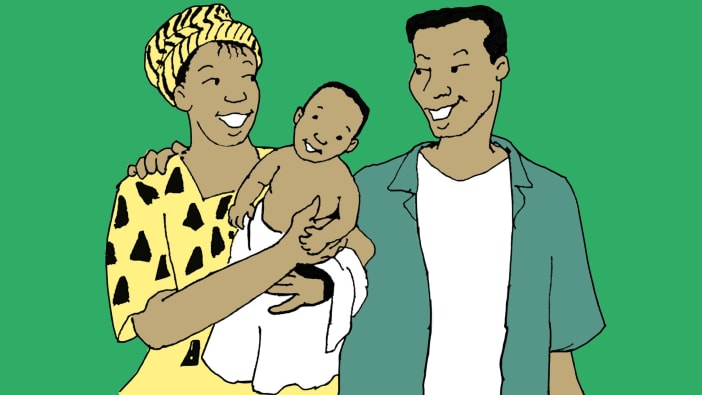There are several important changes in a woman’s life that include:
- puberty
- childbearing
- menopause.
The start of puberty is seen by the physical changes in a girl’s body, leading to her first period. In the same way there are physical changes when the time of reproduction comes to an end. Many women scarcely notice the changes, except for relief that monthly bleeding stops. For others there are various symptoms that can result from the hormonal changes in their body.
Some women celebrate this change with joy, just as the first signs of maturity were celebrated as a young girl. The end of the reproductive years can bring a new sense of freedom. It brings relief from the fear of further pregnancies and relief from the problems that may have been associated with menstruation. Many women welcome the freedom to spend their time caring for grandchildren or in other activities.
Other women feel ashamed by the menopause. They feel less of a woman because they can now no longer have children. In societies where childbearing is the main role of a woman, this can be a particular problem.
However, one thing is common throughout the world. This is that many men and women understand very little about the effects of the natural changes taking place in a woman’s body around the time of the menopause. These changes are slow. They usually take place between 45 and 55 years of age. They are a result of the changes in the sex hormones in her body. The most obvious and permanent change is when her periods actually stop. That usually happens after they have been different for a few months: perhaps less bleeding each time; or much heavier bleeding; or not so regular. It is only after a full year without a period that a woman can be sure she has left her child-bearing years behind her. Until that time there is still the possibility of a pregnancy.
Other temporary signs of the menopause affect all women differently. Some women notice very little change. Others notice various effects:
- hot flushes
- night sweats
- disturbed sleep
- tiredness
- various aches and pains in joints
- dry vagina
- difficulty in concentrating
- moodiness
- depression.
These various signs will all pass eventually. The woman can then begin to enjoy her new freedom. For some women it can mean considerably more strength for daily living as they no longer have the regular monthly bleeding of heavy periods or frequent pregnancies.
A long term effect of the menopause is that bones can become weaker and break more easily. Many women grow shorter as they become older. Sexual relationships may be affected by the dryness of the vagina, but this can be helped by a simple lubricant. The freedom from any fear of another pregnancy can make sexual relationships much better than before.
During this time of change women should try to have a little more sleep than before, continue with plenty of exercise and eat healthy food. During times of frustration with hot flushes, the feeling of tiredness or poor memory, she needs to remember that in a short time it will pass and she will feel much better. The support, care and gentleness of her husband is especially important during these years.
Sandra Michie is a nurse who spent over 20 years working in Zambia in health care.
- In some cultures men believe that women can no longer have sex after the menopause. If they do, they will swell up as if pregnant and then die. Because of this men take young girls as second or third wives. Are there similar beliefs in your culture? How and when can these beliefs be discussed openly?







